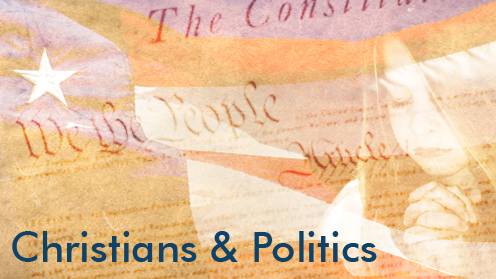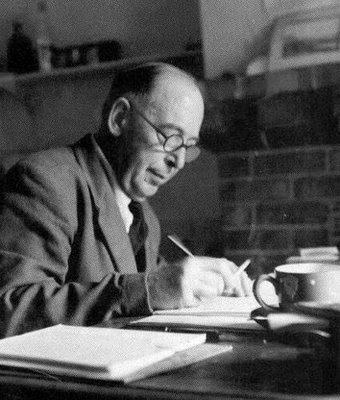One of the highlights of the coming year for me will be the Oxbridge Conference sponsored by the C. S. Lewis Foundation. I’ve never attended this particular conference before. “Looking forward to it” seems too mild a description for what I am anticipating.

This will be my third Lewis Foundation conference and, as before, I will presenting a paper in the Academic Roundtable portion of the conference. The theme overall is “Surprised by Love: Cultivating Intellectual Hospitality in an Age of Discord.” How appropriate, especially for Americans, in our current political climate.
My proposal for a paper already has been accepted. Here’s what I’m planning to write on:
As a professor of American history with a teaching and writing emphasis on American government and politics, the last three years of political rancor have led to greater tension whenever I write about politics. Much of that tension has been between Christians who may have allowed political agendas to override the primacy of the Gospel message. How should Christians respond to one another when they disagree over politics? What, ultimately, is the role of politics in a Christian’s attempt to infuse a culture with the Christian ethos? Have Christians, in some instances, undermined their witness to the world by the manner in which they carry out their perceived mandate? Lewis had no love for politics, but he was deeply concerned for good government. His insights can help Christians today who live in an increasingly polarized culture, not only between Christians and the world, but also between fellow believers.
That’s the plan. I haven’t yet written one word. But I know that one of my sources will be Lewis’s short essay called “Meditation on the Third Commandment.” That third commandment, of course, is found in Exodus 20 as follows: “You shall not take the name of the Lord your God in vain, for the Lord will not leave anyone unpunished who takes His name in vain.” The first time I read the essay many years ago, I wasn’t sure why Lewis gave it this title, especially since he didn’t quote the commandment anywhere in the essay. Now, though, I understand completely how it fits.
Written for the Anglican magazine The Guardian, Lewis was addressing the desire of many in his day to set up a Christian political party. His dissection of that desire—a desire that is perfectly understandable—reveals the pitfalls that await those who try to fulfill the desire.

The first problem is the belief that all Christians will agree on political matters. Will one party ever come together in complete agreement? Now, one difference between the British parliamentary system and America’s system is that in Britain alliances can be formed between two or more parties to control the government, whereas in America, our two-party approach doesn’t allow for that. Lewis’s analysis, though, can apply to both as the principles he lays out are the same.
He begins by noting that there might be at least three “Christian” views on the creation of a Christian party and what needs to be done to accomplish specific goals. The first “Christian” view is the necessity of setting up “an authoritarian State which has swept away the last vestiges of the hated ‘Liberal’ infection.”
He thinks Fascism not so much an evil as a good thing perverted, regards democracy as a monster whose victory would be a defeat for Christianity, and is tempted to accept even Fascist assistance, hoping that he and his friends will prove the leaven in a lump of British Fascists.
While I’m not aware of any significant segment of American Christianity that loves Fascism, the temptation to move toward a more authoritarian State is present in some, thinking that this State will be able to enforce a Christian code on the society.
The second type of Christian Lewis describes is one equally as devout who realizes that the enormity of the sinfulness of man should lead to an abhorrence of the authoritarian State that the first type of Christian favors.
Convinced that no human creature can be trusted with more than the minimum power over his fellows, and anxious to preserve the claims of God from any infringement by those of Caesar, he still sees in democracy the only hope of Christian freedom.
That’s understandable, and, frankly, that’s where my sympathies lie. The potential downside, however, is that he will be “tempted to accept aid from champions of the status quo whose commercial or imperial motives bear hardly even a veneer of theism.” Who will control whom in this scenario?
Lewis then describes the third “Christian” view as the one “full of the prophetic and Dominical denunciations of riches, and certain that the ‘historical Jesus,’ long betrayed by the Apostles, the Fathers, and the Churches, demands of us a Left revolution. And he also is tempted to accept help from unbelievers who profess themselves quite openly to be the enemies of God.”

This is the dilemma, according to Lewis: if the three are able to come together at all and form their Christian party, “either a deadlock ensues . . .or else one of the three succeeds in floating a party and driving the other two, with their followers, out of its ranks.” Although there is no official Christian party in America, most evangelicals have allied with Republicans for understandable reasons: opposition to abortion, religious liberty, etc. But if anyone comes along who agrees with that agenda but who cannot abide the linkage with clearly sinful men and actions, that individual can be, in effect, “driven out” of the party by the party loyalists.
In the British system, the diminished Christian party can then ally itself with the dominant party, whatever that may be. In the American alternative, while there is no specific Christian party, the segment of the dominant party that is specifically Christian will be doing precisely the same. The argument for staying in the party is that Christians can keep it on track. Lewis doesn’t buy that argument.
It is not reasonable to suppose that such a Christian Party will acquire new powers of leavening the infidel organization to which it is attached. Why should it? Whatever it calls itself, it will represent, not Christendom, but a part of Christendom. . . .
It will have no authority to speak for Christianity; it will have no more power than the political skill of its members gives it to control the behaviour of its unbelieving allies.
But there will be a real, and most disastrous, novelty. It will be not simply a part of Christendom, but a part claiming to be the whole. By the mere act of calling itself the Christian Party it implicitly accuses all Christians who do not join it of apostasy and betrayal.
If you don’t join with us, you must not be a real Christian, or you are a Christian who has betrayed the rest of us. That becomes the constant refrain, and one that has now entered more fully into American politics in recent years. Lewis, always adept at making his point with the most striking words, continues with this warning: “The demon inherent in every party is at all times ready enough to disguise himself as the Holy Ghost.” Surely Christians won’t be fooled, right? Lewis assumes that many will be fooled: “And when once the disguise has succeeded, his commands will presently be taken to abrogate all moral laws and to justify whatever the unbelieving allies of the ‘Christian’ Party wish to do.”
A final warning: “All this comes from pretending that God has spoken when He has not spoken.”

So is Lewis advocating Christian withdrawal from politics? Not at all. He concludes the essay by urging Christians to apply whatever pressure they can on politicians of all stripes to achieve Christian means and ends in government policies. Get involved. Write to representatives. Speak our minds. “I think such pestering,” Lewis advises, “combines the dove and the serpent. I think it means a world where parties have to take care not to alienate Christians, instead of a world where Christians have to be ‘loyal’ to infidel parties.” My concern is that the latter is now occurring.
Lewis’s final comment may be perhaps his most poignant: “There is a third way—by becoming a majority. He who converts his neighbour has performed the most practical Christian-political act of all.”
May we all keep our priorities straight and realize that communicating the Gospel message is the reason we are here.
